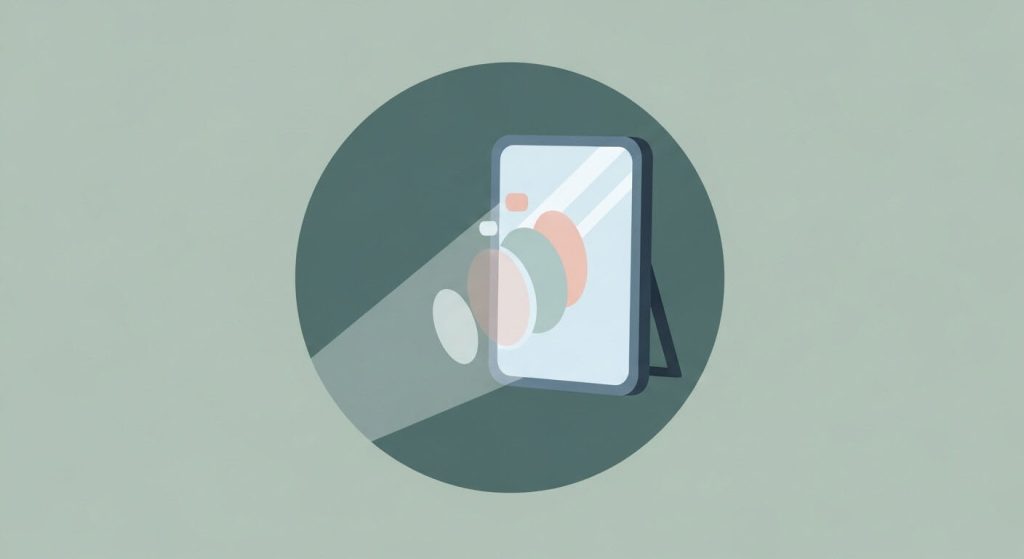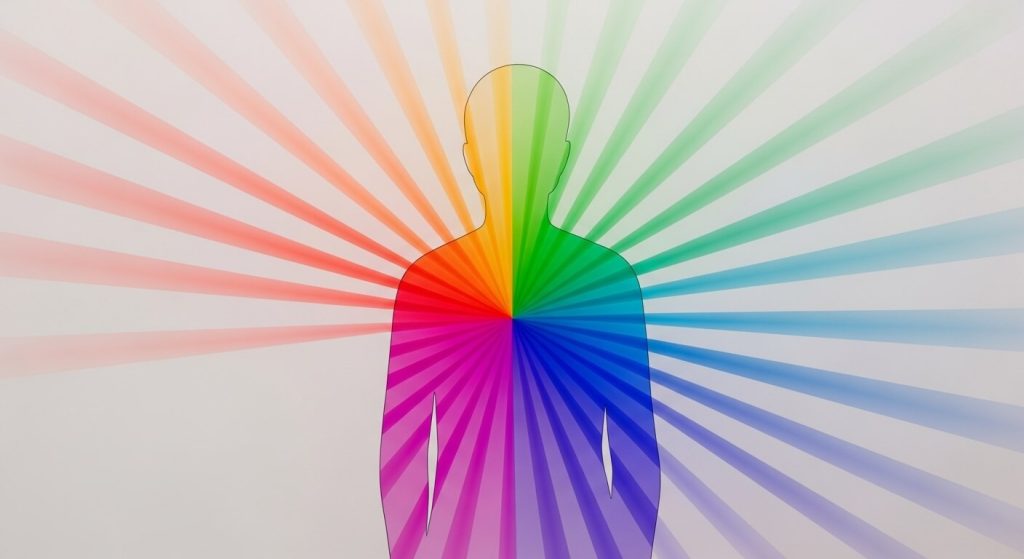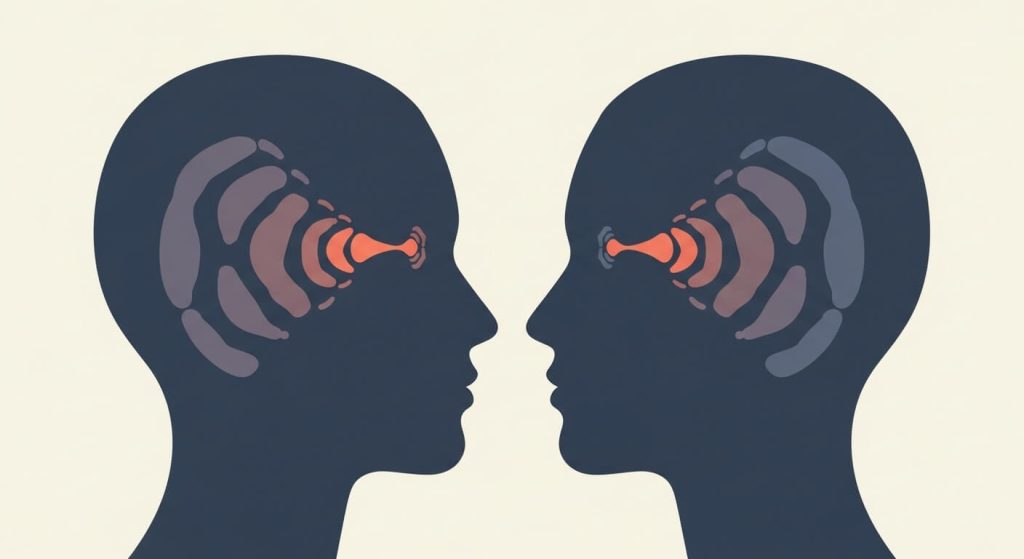Metaphors are essential tools for understanding. They allow us to grasp complex, abstract ideas by comparing them to something simple and familiar. When it comes to the greatest mystery of all—the nature of consciousness—few metaphors are as elegant and powerful as that of the mirror. The mirror as a metaphor for consciousness helps us explore what it means to be aware, how we form our identity, and our profound connection to the world around us.
This metaphor suggests that consciousness is not a thing we possess, but a capacity to reflect. Just as a mirror reflects light, consciousness reflects experience. This simple yet profound idea opens up new ways of understanding ourselves and our place in the universe. It suggests that the statement, “life is a mirror reflecting your inner world,” is not just a poetic phrase, but a description of a fundamental reality.
This article will explore the rich layers of this metaphor. We will examine how individual consciousness can be seen as a unique mirror, how the self acts as a mirror of society, and the role of mirror symbolism in personality. By looking at consciousness through the lens of a mirror, we can gain stunning insights into the nature of who we are.
The Individual Mirror: Consciousness as a Reflective Surface

At its core, the metaphor suggests that each individual’s consciousness is like a unique mirror. The universe, or “reality,” is like a single, all-encompassing light. Each of us, as a conscious being, reflects this light in our own distinct way. Your consciousness is the surface that catches the light of sensory input, thoughts, and emotions, creating the movie of your subjective experience.
This perspective offers several key insights:
- Consciousness is not a source, but a reflector. A mirror does not create the light it shows; it simply reflects what is already there. Similarly, this metaphor suggests that consciousness does not create the world. Instead, it reflects the world. Our brains and nervous systems act as the reflective surface, processing external stimuli and internal signals to produce the experience we call “reality.”
- Every mirror is unique. No two mirrors are perfectly identical. One might be concave, another convex. One might be tinted, another cracked. These imperfections alter the reflection. Similarly, each person’s consciousness is unique. Your genetics, upbringing, memories, and beliefs form the specific shape and quality of your “mirror.” This is why two people can experience the same event and have completely different reflections, or interpretations, of it.
- The goal is to have a clear mirror. In many spiritual and psychological traditions, the goal of personal development is to “clean the mirror.” The “dirt” on the mirror represents our biases, traumas, limiting beliefs, and egoic attachments. When the mirror is dirty, the reflection is distorted. We don’t see the world as it is, but as our conditioning dictates. Practices like meditation and self-inquiry are methods for cleaning this surface, allowing for a clearer, more accurate reflection of reality.
Viewing consciousness this way is empowering. It means that while we may not control the light (the events of life), we can work on the quality of our mirror (our state of consciousness).
The Social Mirror: The Self as a Mirror of Society

The metaphor expands beautifully when we consider our social existence. The concept of the self as a mirror of society, introduced by sociologist Charles Horton Cooley as the “looking-glass self,” suggests that our sense of identity is not formed in isolation. Instead, it is a reflection of how we believe others see us.
This process happens in three steps:
- We imagine our appearance to other people.
- We imagine their judgment of that appearance.
- We experience a feeling, such as pride or shame, as a result of that perceived judgment.
Our “self” is therefore a social construct, a reflection built from countless interactions. The culture, family, and community we are born into act as a hall of mirrors, reflecting to us the values, norms, and beliefs we are expected to adopt. From the language we speak to the clothes we wear, from our political views to our standards of beauty, our identity is largely a reflection of the society we inhabit.
This is not to say we have no individual agency. We can choose which reflections to identify with and which to reject. However, we cannot escape the hall of mirrors entirely. Even an act of rebellion is a reaction to a reflection. The punk rocker who rejects mainstream fashion is still defining themselves in opposition to the societal mirror.
Understanding this has profound implications. It fosters compassion by showing that people’s beliefs and behaviors are often reflections of their social conditioning. It also invites us to become more critical consumers of the reflections we receive. We can ask: “Is this reflection true to who I am, or is it just a societal expectation I have internalized?”
The Personal Mirror: Life Reflects Your Inner World

This is perhaps the most personal and transformative application of the metaphor. The idea that life is a mirror reflecting your inner world is a central tenet in many spiritual philosophies. It proposes that your external circumstances, especially recurring patterns, are a direct reflection of your internal state—your beliefs, fears, and unresolved emotions.
The universe, in this view, is a giant feedback system. It doesn’t give you what you want; it gives you what you are. It reflects your dominant vibrational frequency.
- If you hold a deep, unconscious belief that you are unworthy of love, life may reflect this by bringing you partners who are unable to commit or who treat you poorly. The partner is the mirror showing you your own beliefs about yourself.
- If your inner world is filled with anxiety and fear about scarcity, your outer world may reflect this with financial struggles or missed opportunities.
- Conversely, if your inner world is one of gratitude, self-worth, and trust, your life will tend to reflect this with synchronicities, supportive relationships, and abundance.
This principle is not about blaming yourself for misfortune. It is about empowerment. It means that the point of power is not to manipulate the external world, but to transform your inner world. When you heal the belief of unworthiness, your reflection changes, and you begin to attract healthy, loving relationships. When you shift from a mindset of lack to one of abundance, your financial reality begins to shift.
Working with this principle involves radical self-honesty. When a negative pattern appears in your life, you are invited to look in the mirror and ask: “What belief or feeling inside me is this situation reflecting?” By addressing the cause within, you change the reflection without.
Personality as a Reflection: Mirror Symbolism in Personality

The mirror metaphor also provides a fascinating lens for understanding personality. Mirror symbolism in personality suggests that many of our traits are developed through mirroring others, a process that begins in infancy.
The discovery of “mirror neurons” in the 1990s gave a biological basis to this idea. Mirror neurons are brain cells that fire both when we act and when we see someone else perform that same action. They are the neurological basis for empathy, imitation, and social learning. When you wince because you see someone else get hurt, that’s your mirror neuron system at work.
This mirroring process is fundamental to personality development:
- Imitation: As children, we learn by mirroring our parents and caregivers. We adopt their gestures, their tone of voice, and even their ways of thinking. This forms the foundation of our personality.
- Empathy: Our ability to understand and share the feelings of another is a form of emotional mirroring. Empathetic people have highly active mirror neuron systems, allowing them to “feel into” the experience of others.
- Identity Formation: As adolescents and adults, we continue to mirror people we admire. We might adopt the work ethic of a respected mentor or the fashion sense of a style icon. This is part of how we try on and integrate different aspects of our identity.
Our personality is a mosaic of these reflections. It is a unique combination of all the people we have mirrored throughout our lives, integrated into a cohesive whole. Understanding this can help us be more intentional about who we choose to “mirror.” Surrounding ourselves with people who embody the qualities we wish to cultivate—like kindness, integrity, or courage—is a powerful way to shape our own personality.
Conclusion: You Are the Beholder

The mirror as a metaphor for consciousness is a deep and multifaceted concept. It teaches us that our awareness is a reflective surface, not a static thing. It reveals that our sense of self is a social tapestry, woven from the threads of how others see us. It empowers us by showing that our external life is a direct reflection of our inner world, giving us a clear path for personal transformation.
Ultimately, the metaphor points to a profound truth: the quality of your life depends on the quality of your mirror. Is it clean and clear, reflecting reality with sharpness and compassion? Or is it clouded by fear, judgment, and past conditioning, showing only a distorted and gloomy picture?
The work of a conscious life is the work of polishing this mirror. It is the practice of clearing away the debris of the ego to allow the light of pure awareness to shine through. The world will always be a reflection. The question is, what will you choose to see?
